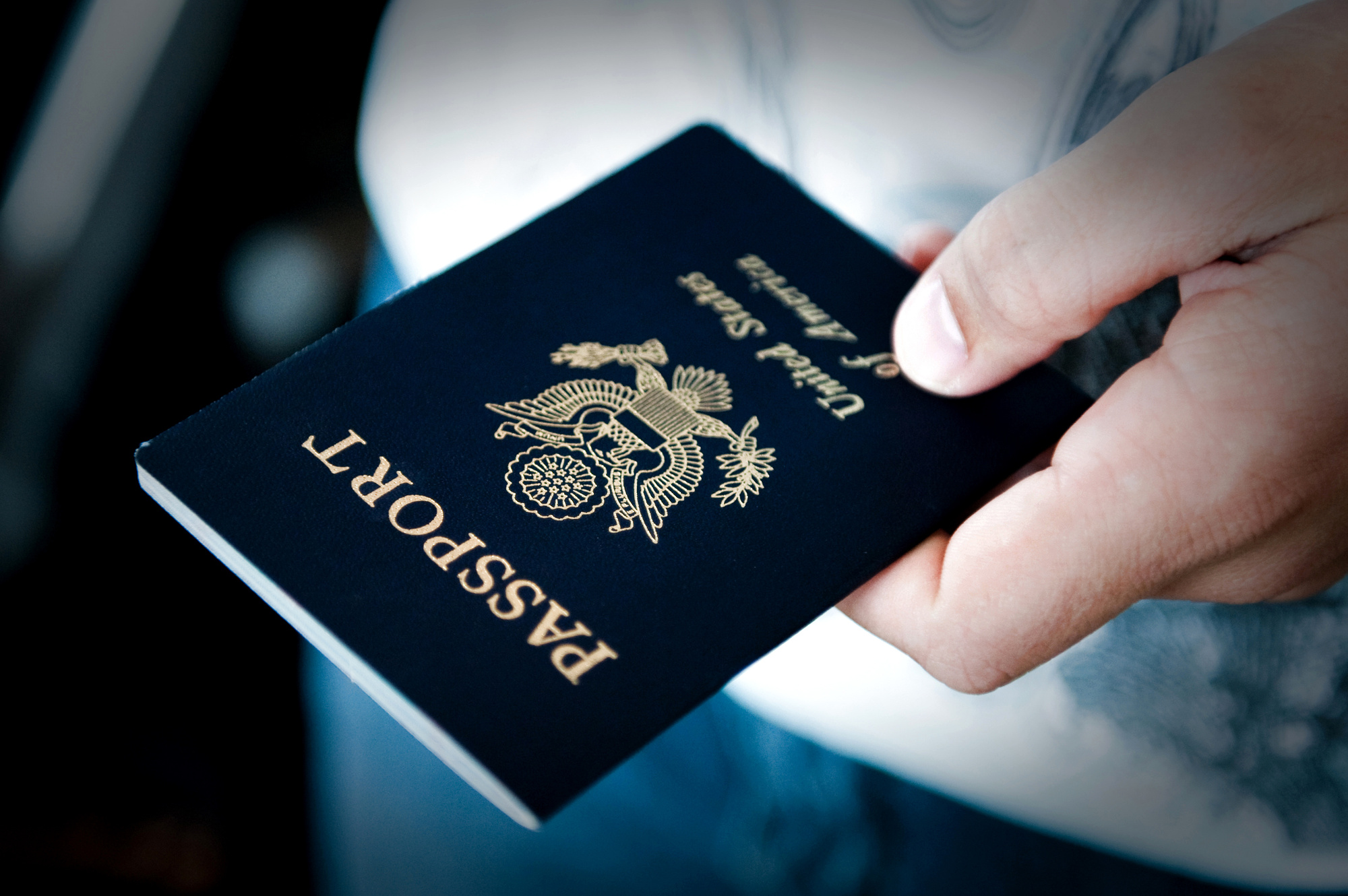There are about 159 countries the U.S. citizens can travel without a visa. So selecting from such a long list was not easy. The top 5 countries in this article may be up for argument; however, each has something unique to offer, and when you visit, you will realize it as well.
U.S. Passport
A passport is a document issued to citizens of the country to travel outside their native country. Another way of obtaining a passport is to become a naturalized citizen of the country you now call home. The document contains the holder photo, date of birth, address, sex, and biometrics. In the U.S., a passport comes in two forms, a book, and a card.
For an adult, 16 years and older, a passport book or card is valid for 10 years. A minor, younger than 16 years, passport or card is good for five years. Only an adult passport can be renewed.
A U.S. passport is accepted in any country around the globe. Most of these countries do not require a visa but just a passport. Some, for example, Canada, Mexico, Bermuda, and the Caribbean, will accept a passport card instead of the book.
Visa
A visa is a stamp or electronic document that you can use to enter a country. Most visas have an expiration date. Also, some can be used for a single entry while others for multiple. Unlike a passport, a visa is unique to the country that provides it. For example, you cannot use a Chinese visa to enter Russian and the other way around. But, you can use a passport as identification for both countries.
There four types of visas. You can apply for a tourist visa, immigration, and naturalization visa, student visa, or business or work visa. Each has a set of unique requirements you must comply with to qualify. Also, the type will determine the price and how long you are allowed to remain in the country.
Top 5 Countries to Travel Without Your U.S. Passport

Dominican Republic
The Dominican Republic shares the island with Haiti. This Spanish speaking country has some of the most beautiful beaches in the Caribbean. It also has many awards winning hotels with luxury accommodations. These hotels mostly come with all-inclusive packages.
If you love sailing and snorkeling, Punta Cana is the place to go. You will see white sandy beaches with breathtaking views. You can join the excursion and shop at the Cabeza De Toro Natural Reserve for your snorkeling equipment.
Visit historical capital, Santo Domingo, to see the Columbus Alcazar Museum. You will also see the National Palace government building and 1540 built Cathedral of Santa Maria la Menor.
Another fantastic place to visit is the Fun Fun Cave. The cave is the largest in the Caribbean. Before going there, you will trek through the Los Haitises National Park and the rainforest. Once in the cave, you can explore the stalagmites and stalactites while observing the rock formation in the cave.

Peru
Peru is another country to visit without a visa. This South American country still has its history high on display, like the ruins of the Incas. You can see the modern side of the country or travel to more remote parts to understand its history.
Peru has a lot to discover. You can visit the Manu National Park, Lake Titicaca, Colca Canyon, Llanganuco Lagoon, or the wildlife observation. If you want to walk where Peru first inhabitants did, go to Machu Picchu, Chavin de Huantar, Chan Chan, Caral, or Kuelap.
If you want to see something mysterious, fly over the desert and see the drawings done between 500 and 650 AD by the Nazca settlers.
Lima, the oldest city, is mixed with historical and modern buildings. You will see churches, monasteries, mansions, and balconies built during colonial times. Also, museums with great work of arts, archeological sites, beaches, boardwalks, and the adventures of sports.
Related Read: Visa Information for Peru

Ireland
Ireland is another magnificent place filled with history and ready for you to explore. You can be on top of a towering sea cliff or sitting in a traditional pub enjoying the locals dancing and you joining in.
You can cruise on the iconic Shannon River or a journey through heritage and history through Athlone. Athlone offers many nature adventures. You can walk, cycle, or take boat trips. Horseback riding is another fun adventure to do. You will surely be amazed by Athlone Castle.
Standing at the top of the Gobbins Cliff will give you some of the most breathtaking views. This cliff hangs from the basalt cliffs and over the Irish Sea. It is a favorite stop along the Causeway Coastal Route.
If you think you are one with the cosmos, then chasing the northern lights is something you don’t want to miss. To see this spectacular viewing, you should be at Donegal’s Inishowen Peninsula.
For surfers, the Bundoran is the place to be. You will uncover beautiful beaches and mighty waves to hitch a ride. You will find surfers all year round which makes it pretty busy. You can get your surfing gears from the local stores and take surf lessons if you are a beginner.
Related Read: How to Apply for an Irish Visa?

Israel
Israel is another country with a deep history, especially for Jews and Christians across the world. For Christians, there are many historical places to visit in Israel. For instance, Jerusalem, the Dome of the Rock shrine, the historic Western Wall, Al-Aqsa Mosque, and the Church of the Holy Sepulchre.
Other famous places to visit are Nazareth and the Sea of Galilee. These places were significant in the life of Jesus Christ. You can also visit the ruins of Caesarea or the cliff fortress of Masada that overlook the Dead Sea, known for its spas and mineral-heavy water.
If you want to gather on the Mount of Beatitudes, the same place Jesus gave his Sermon on the Mount, you can join one of many excursions. Mount Tabor is another significant place to see. Yad Vashem is a memorial complex for Holocaust victims where you will view historical exhibits.
Related Read: How to Get a Visa for Israel?

New Zealand
New Zealand is located just below Australia. It comprises of two islands both with volcanoes and glaciers. Once in New Zealand, you can visit Milford Sound, Aoraki/Mount Cook, Fiordland National Park, Waitomo Caves, or the Bay of Islands.
Milford Sound is home to fur seal colonies, penguins, and dolphins. The towering Mitre Peak displays waterfalls as Stirling and Bowen Falls. You can also visit the Milford Discovery Center and the Underwater Observatory to view rare black corals and other marine life.
Aoraki/Mount Cook is the highest mountain in New Zealand. Its elevation is 12,218 feet and it provides excellent glacial views.
Fiordland National Park is in the southwest of the South Island. It is known for the glacier-carved fiords of Doubtful and Milford sounds. A beech forest trail on the sandy Milford shore offers views of towering Mitre Peak.
Waitomo Caves is a village known for its extensive underground cave systems. In the Glowworm Caves, you will see thousands of glow-worms that light up the cave. At the Ruakuri Cave, there are waterfalls and limestone formations. Northeast of the village you will find the Otorohanga Kiwi House that shelters several species of rare native kiwi birds.
Bay of Islands is a New Zealand enclave encompassing more than 140 subtropical islands near the North Island. It is known for big-game fishing, Maori cultural artifacts, and undeveloped beaches. You will find remnants from the days when it was the country’s first colonial capital.
Related Read: New Zealand Visa
Conclusion
New Zealand is one of the most beautiful islands in the world with stunning landscapes, abundant wildlife, and rich culture. From glacial mountains to sparkling lakes, from majestic fjords to lush rainforests, it has something for everyone. Whether you want to go bungee jumping or take a leisurely hike in the countryside, New Zealand will offer you an unforgettable experience. With its vibrant cities, spectacular coastlines and unique cultural heritage, New Zealand is truly an unforgettable place to visit. With the right visa or passport requirements in place, you can explore this amazing country without any hassles. So plan your trip today and experience all that New Zealand has to offer!
If you have any questions about the passport or visa requirements
 However, living in dorms will also have some challenges. Most often, you will be paired with at least one person when you live in a dorm. Your roomie can be from any country in the world. So, you must learn to live with a stranger and share the space and everything that comes with it.
However, living in dorms will also have some challenges. Most often, you will be paired with at least one person when you live in a dorm. Your roomie can be from any country in the world. So, you must learn to live with a stranger and share the space and everything that comes with it. You get to build a relationship you never expect to have in another living environment. Apart from the culture and language, you also get firsthand experience of places you may not seek to adventure if living in a dorm or apartment. Even speak the language.
You get to build a relationship you never expect to have in another living environment. Apart from the culture and language, you also get firsthand experience of places you may not seek to adventure if living in a dorm or apartment. Even speak the language. Apartments also offer many experiences. Most often, you will have students living in the same building or area. So, you will find yourself hanging out in the same restaurants, clubs, or at the beach.
Apartments also offer many experiences. Most often, you will have students living in the same building or area. So, you will find yourself hanging out in the same restaurants, clubs, or at the beach.


 If your choice of studying abroad is an English-speaking country, then you might be familiar with the culture. Still, do your homework. Communicating may not be the problem but understanding how things are done is essential.
If your choice of studying abroad is an English-speaking country, then you might be familiar with the culture. Still, do your homework. Communicating may not be the problem but understanding how things are done is essential. Knowing how to get around is very important. As a student, you are surely living on a budget and must make your money stretch. Look for the cheapest and safer way to get around. Some cities are best for getting around on bikes or mopeds. Use public transportation when possible. It is another inexpensive way of moving from one place to another.
Knowing how to get around is very important. As a student, you are surely living on a budget and must make your money stretch. Look for the cheapest and safer way to get around. Some cities are best for getting around on bikes or mopeds. Use public transportation when possible. It is another inexpensive way of moving from one place to another. If you can find a job, that would be perfect. Earning some money will help you to adopt more easily. You would be interacting more and getting to meet more people. Understand the culture and language. Also, you will have a chance to tour the country and see more than just the campus. Make sure you have the documentation that allows you to work. You don’t want to do anything that may jeopardize your study abroad or worse, get you into trouble with the law.
If you can find a job, that would be perfect. Earning some money will help you to adopt more easily. You would be interacting more and getting to meet more people. Understand the culture and language. Also, you will have a chance to tour the country and see more than just the campus. Make sure you have the documentation that allows you to work. You don’t want to do anything that may jeopardize your study abroad or worse, get you into trouble with the law.


![New U.S. Passport Rules for Child Sex Offenders [2023]](https://www.uspassporthelpguide.com/wp-content/uploads/2019/04/cancelled-passport.jpg)







